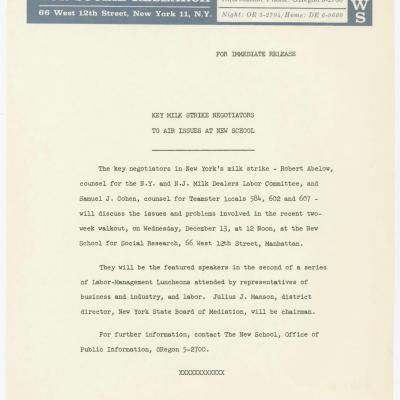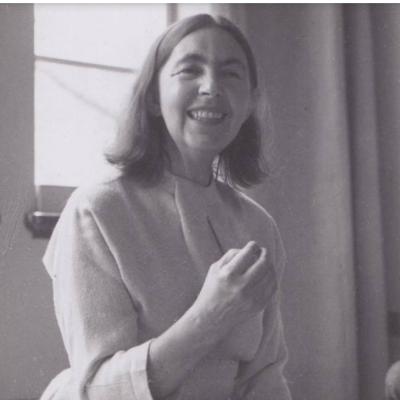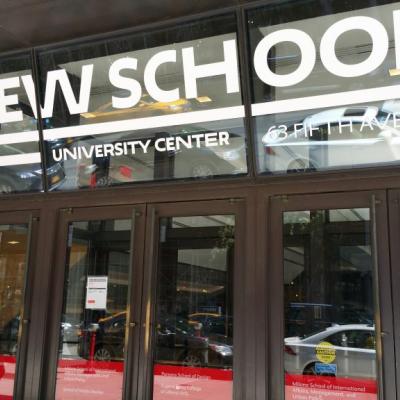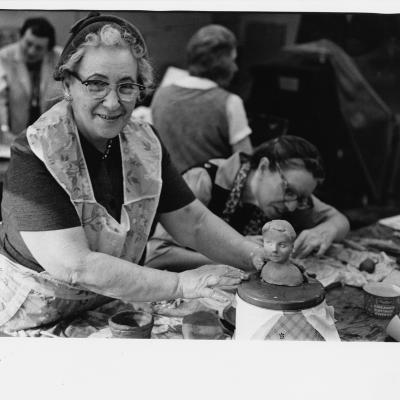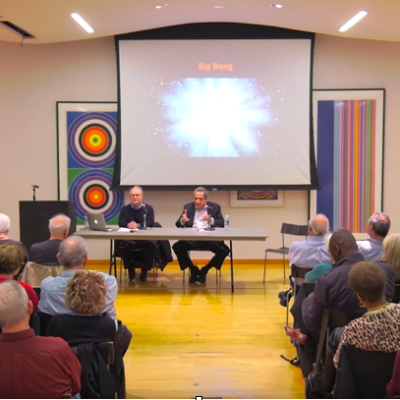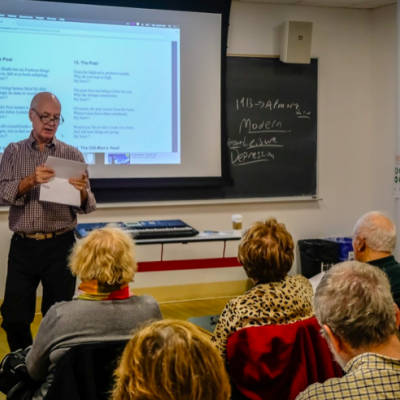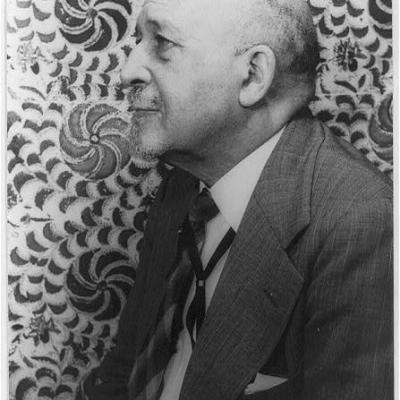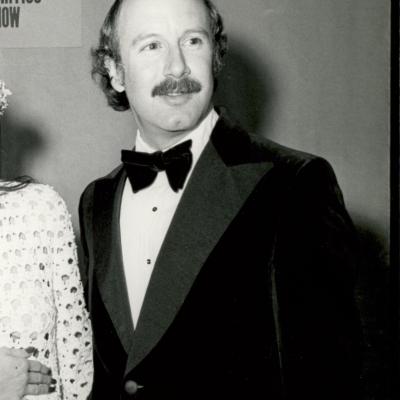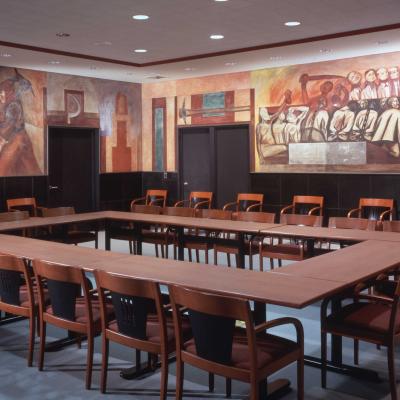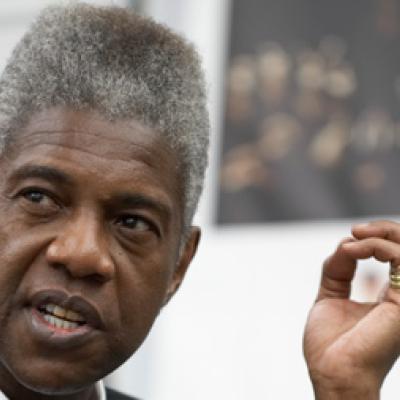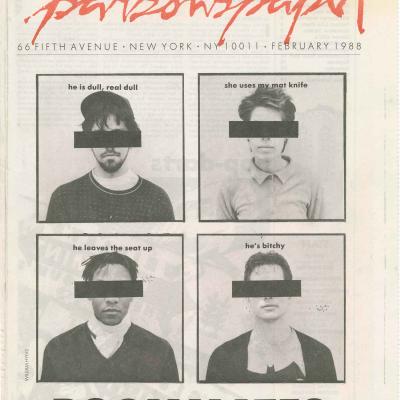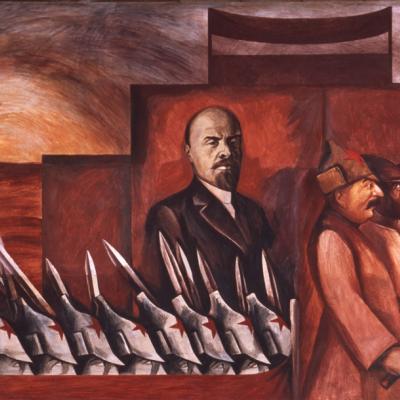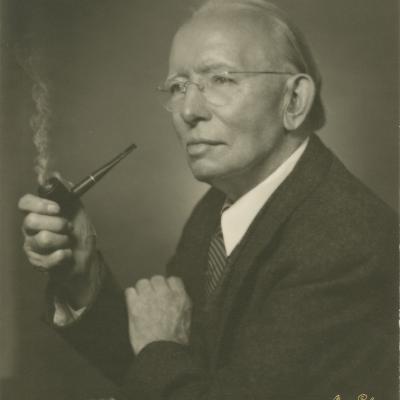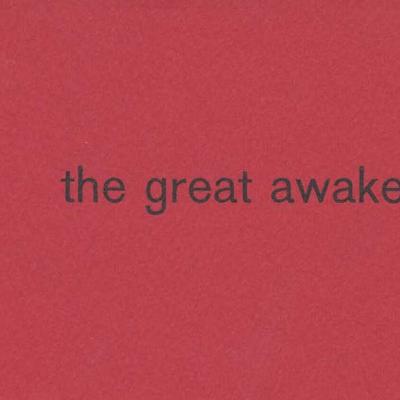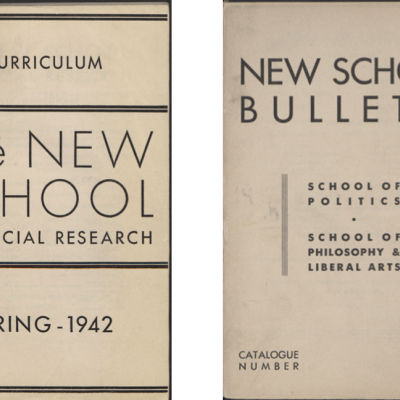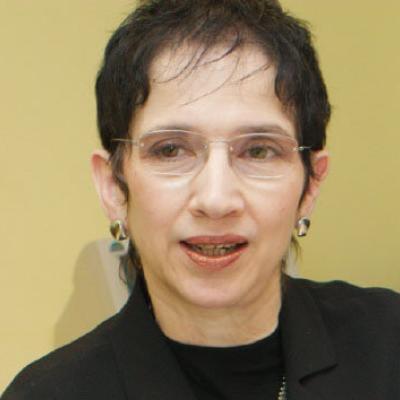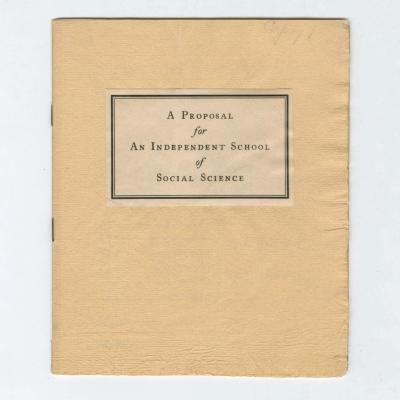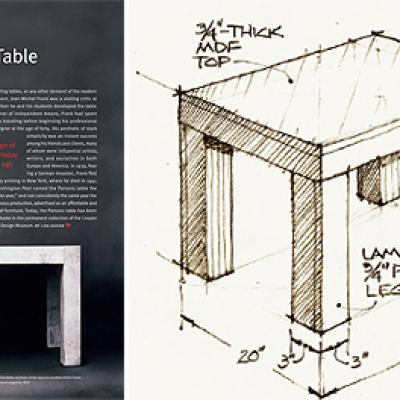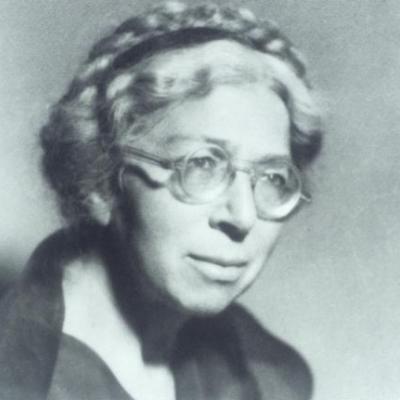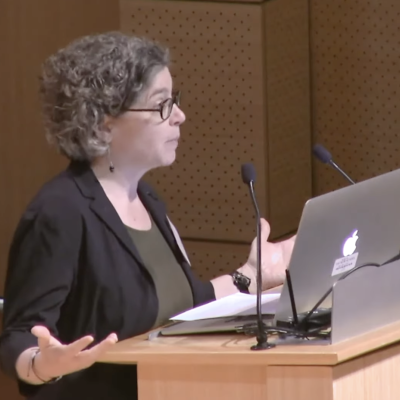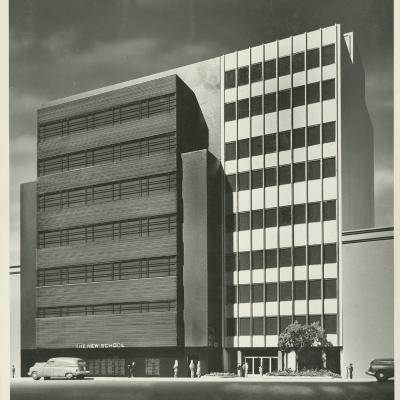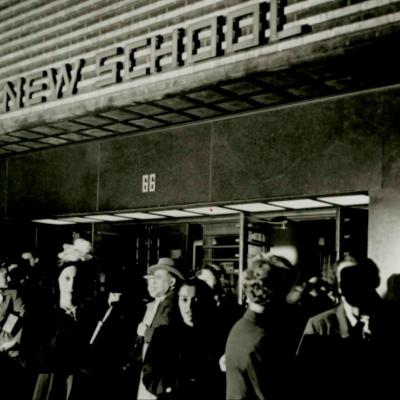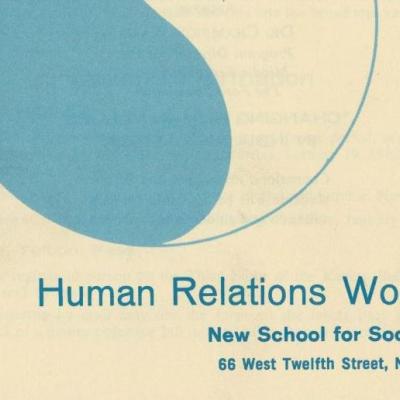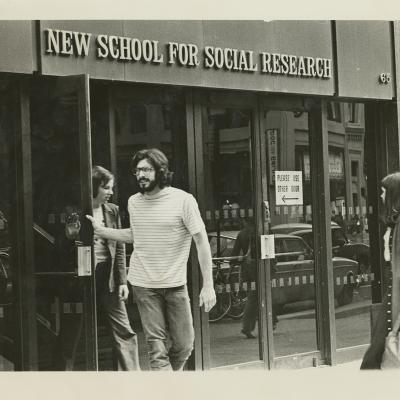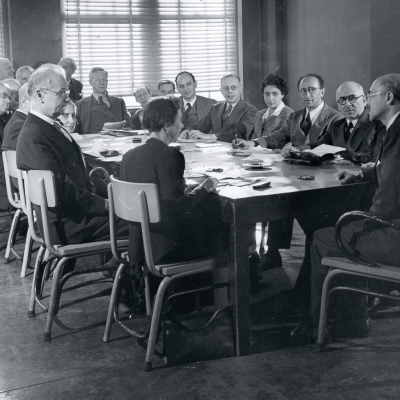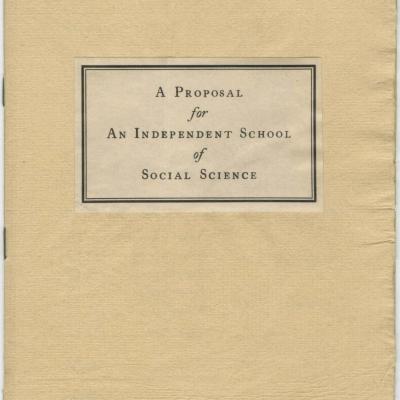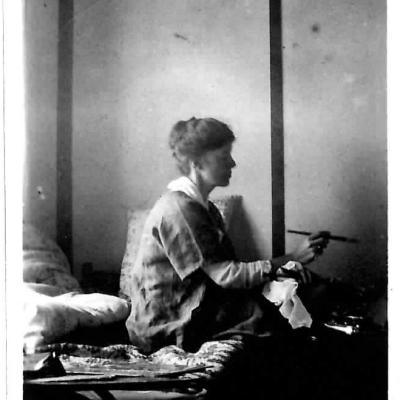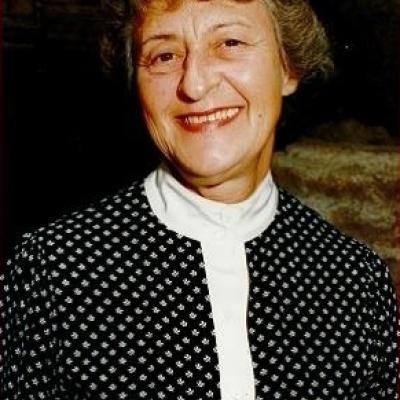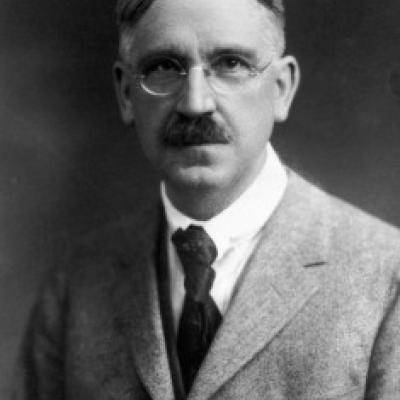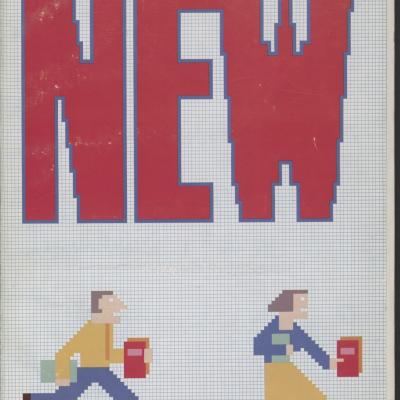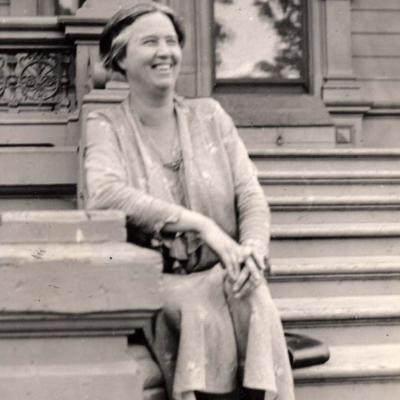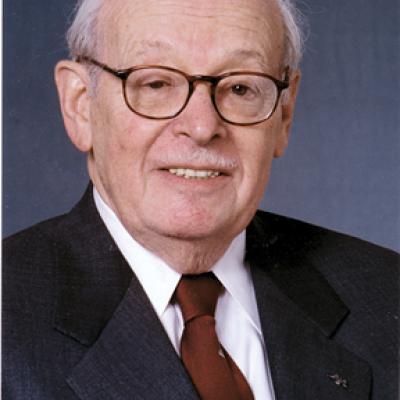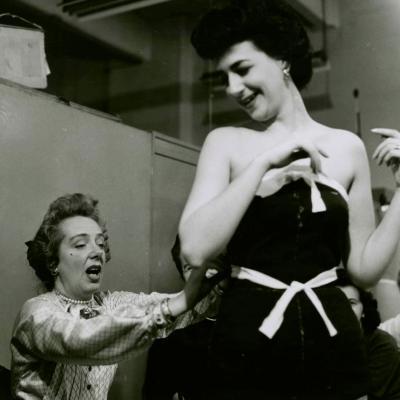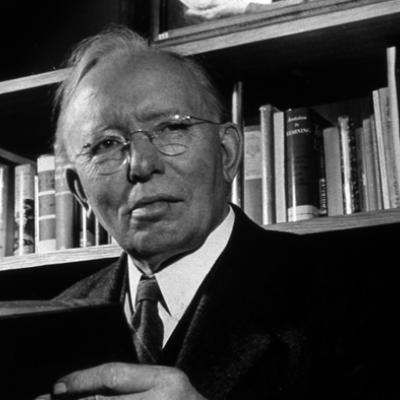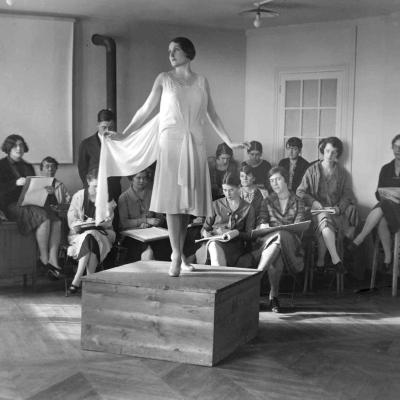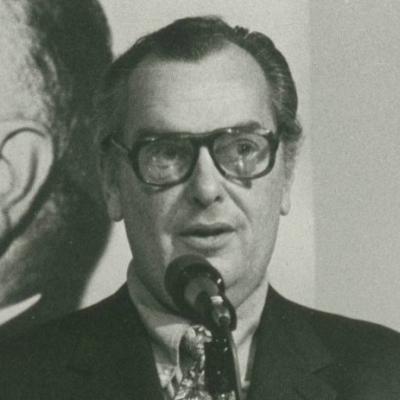Category: Education
Labor at The New School
There is an ongoing history of efforts to build bridges between labor and management at the New School that lasted from 1919 through the 1970s.
Sensory Awareness and Our Attitude Toward Life
In our work of Sensory Awareness, we experiment with all the simple activities of daily life, all the things which we have been doing since we were born, or which we have learned in our earliest infancy, such as walking, standing, sitting, lying, moving, resting, seeing, speaking, lis
Charlotte Selver
Charlotte Selver (1901-2003) was a music educator and body awareness instructor born in Germany. In the 1920s, Selver studied piano and was also enrolled in the Dr.
A Public Seminar Series on New School Histories
2021
| June 28 | “A Sanctuary from Double Betrayal: What The New School could do for its students from China” by Lei Ping and Mark |
The Exhibition Table
Several months ago it was necessary for me to import a large table into my English classroom. After the original use for the table had passed, I searched for the janitor to ask him to remove it.
1930s Multiculturalism: Rachel Davis DuBois and the Bureau for Intercultural Education
The Bureau for Intercultural Education was the brainchild of a young school teacher, Rachel Davis DuBois.
Letters from America: Hans Weisse
Of all Schenker’s pupils and disciples, none was as important for the dissemination of his teachings as Hans Weisse. Weisse seems to be at the forefront of every initiative to promote his teacher’s work, whether as a private tutor, a public lecturer, or an ambassador of music theory.
The Guardian of New York’s Living Heritage: Panel Oversees Historic Districts with a Loving Eye
When Gerald and Beatrice Banu sought approval for refurbishing the cast iron balustrades that grace the front of their 114 year-old Greenwich Village brownstone, the New York City's Landmarks Preservation Commission quickly gave its approval.
Art as Experience
Under conditions of resistance and conflict, aspects and elements of the self and the world that are implicated in this interaction qualify experience with emotions and ideas so that conscious intent emerges. Oftentimes, however, the experience had is inchoate.
What to Listen for in Music—From Composer to Interpreter to Listener
Music begins with a composer; passes through the medium of a interpreter; and ends with you, the listener. Everything in music may be said, in the final analysis, to be directed at you-the listener.
The IRP and the Beginning of the Learning in Retirement Movement
The IRP’s Collaboration with the New School
The diverse and experienced members of the IRP have backgrounds in the sciences, arts, business, academia, law and more. They support objectives of the New School through a variety of volunteer endeavors.
Peer Learning
W.E.B. Du Bois
William Edward Burghardt Du Bois (February 23, 1868—August 27, 1963) was an American historian, sociologist, and civil rights activist, widely recognized for his historiography on Reconstruction, writings on black subjectivity, and involvement in the Pan-Africanist movement.
Parsons Deans and Presidents
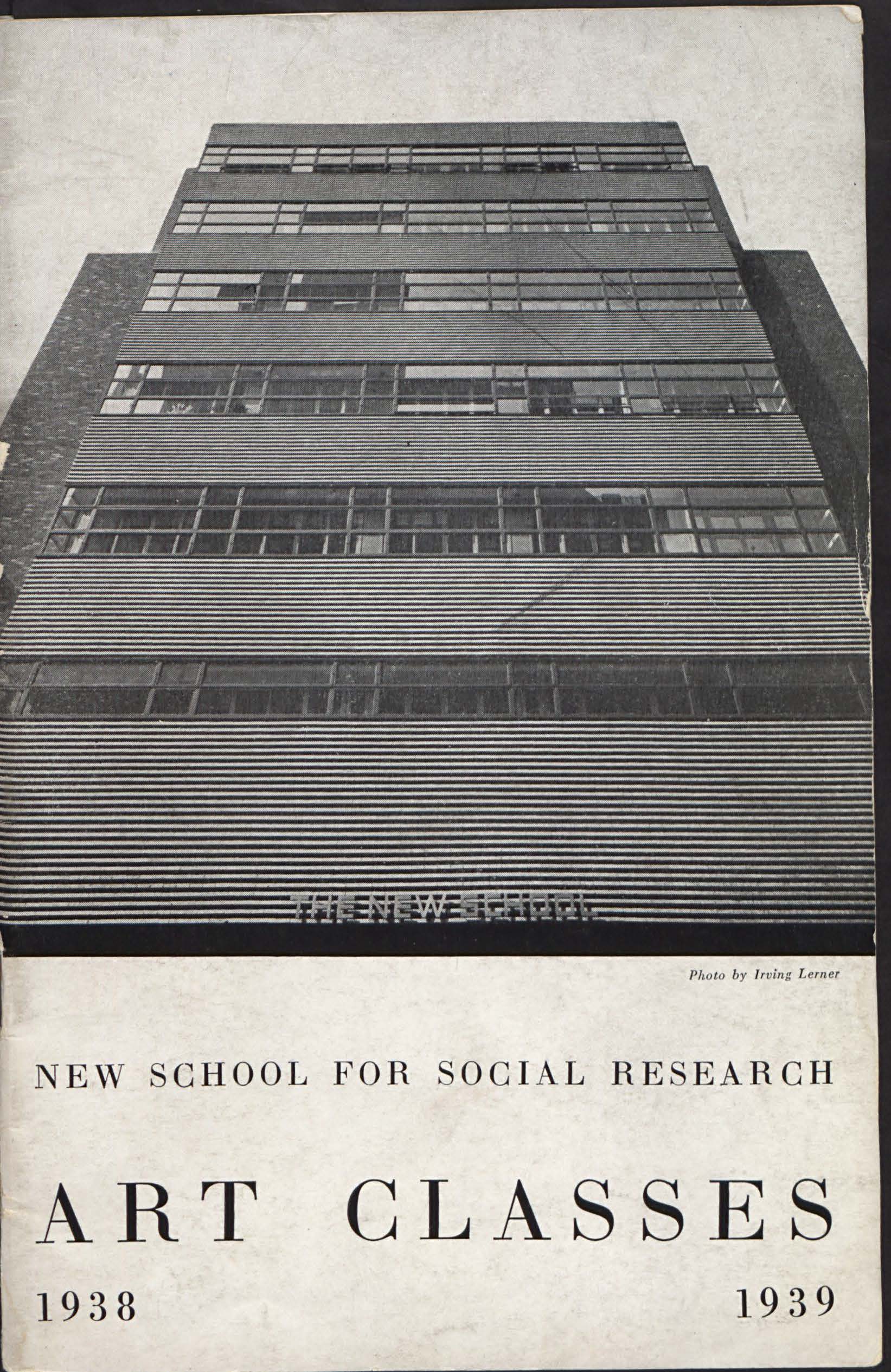
Parsons Deans and Presidents
William Merritt Chase, 1896-98 (rem
A New Vision
The old building at 65 5th Avenue was awkward, badly lit, uninspiring, and ultimately, unsustainable. Of course the old building was never intended to serve as a functional academic facility.
George Pitts
Multi-talented George Pitts taught photography at Parsons for two decades, from 1998 until his untimely death in 2017. He came to Parsons as the revolutionary, founding Director of Photography at Vibe magazine, where he worked from 1993 to 2004.
ParsonsPaper: What Students’ Illustrations Can Tell You
ParsonsPaper was a monthly student-produced newspaper that ran from 1976 to 1990, and was sponsored by the Parsons Student Council. The newspaper featured news, opinions, poetry, artwork and photographs contributed by Parsons students, faculty and administrators.
You Only Need One Idea
Today is my first post for The New School Archives blog, but also my last day of working at the New School Archives (I’m a student and I’m graduating up!). In honor of this fact, I thought it would be appropriate to tell the story of how I became interested in archival research.
Alvin Johnson, Deliver Us from Dogma
If someone told you that students from the New School are very open-minded, that would not be surprising.
The Great Awakening
I started working in The New School Archives as an assistant on the audio collections of the school.
The New School Catalogs over the Years
A collage of the covers of the New School catalogs over the years.
Bea Banu
You walk into her office on the ninth floor of Joseph Urban’s Modernist architectural masterpiece, Alvin Johnson/J.M. Kaplan Hall, at 66 W. 12th St. She gives you a warm smile with a firm, friendly handshake.
The Mission of the School: Then and Now
Some principles on which the school was founded upon were academic freedom and the need to reinvigorate democracy. These core principles remain the same.
The Parsons Table
The Parsons table is not a physical object but an idea, the platonic ideal of a table, characterized by a simple form, unadorned, adaptable to any material, with legs as wide as the tabletop is deep.
Clara Mayer
Clara Woolie Mayer (1895-1988) is possibly the most important forgotten figure in New School administrative history.
A New School Minute (or Two)
On Alumni Day on May 11, 2013, the Alumni Office asked twenty faculty and staff to give a 60-second lecture. Tasked with the topic of “New School History,” it was quite a challenge!
What is New is Old: A Talk on the History of The New School
Julia Foulkes gave a talk for the Greenwich Village Society for Historic Preservation on July 8, 2015, on the history of the New School. Video here.
What Does it Mean to Be a Progressive University?
For Staff Development Day, Julia Foulkes and Mark Larrimore delivered the keynote address, providing a historical look at the university. Staff, faculty, and friends of the university often tag it as “progressive.” But what exactly does that mean? And what has it meant in the past?
The Human Relations Center
The Human Relations Center began in 1951 at the behest of Clara Mayer, the infamous right-hand woman of Alvin Johnson, the long-time director of the school.
Growing Up at The New School in the 1960s and ’70s
The adult undergraduate division—now known as the New School for Public Engagement—has always been the New School’s “first responder” to cultural trends, and in this era it both reflected the activism and enthusiasm of the 1960s and channeled radical, even potentially nihilistic impulses through
University in Exile
Alvin Johnson was the president of the New York New School for Social Research when, in 1933, he responded with alacrity to the growing crisis in Europe. The previous year, Alvin Johnson had traveled to Europe and had witnessed a potential need for a haven for academics and scholars.
The Founding, 1919
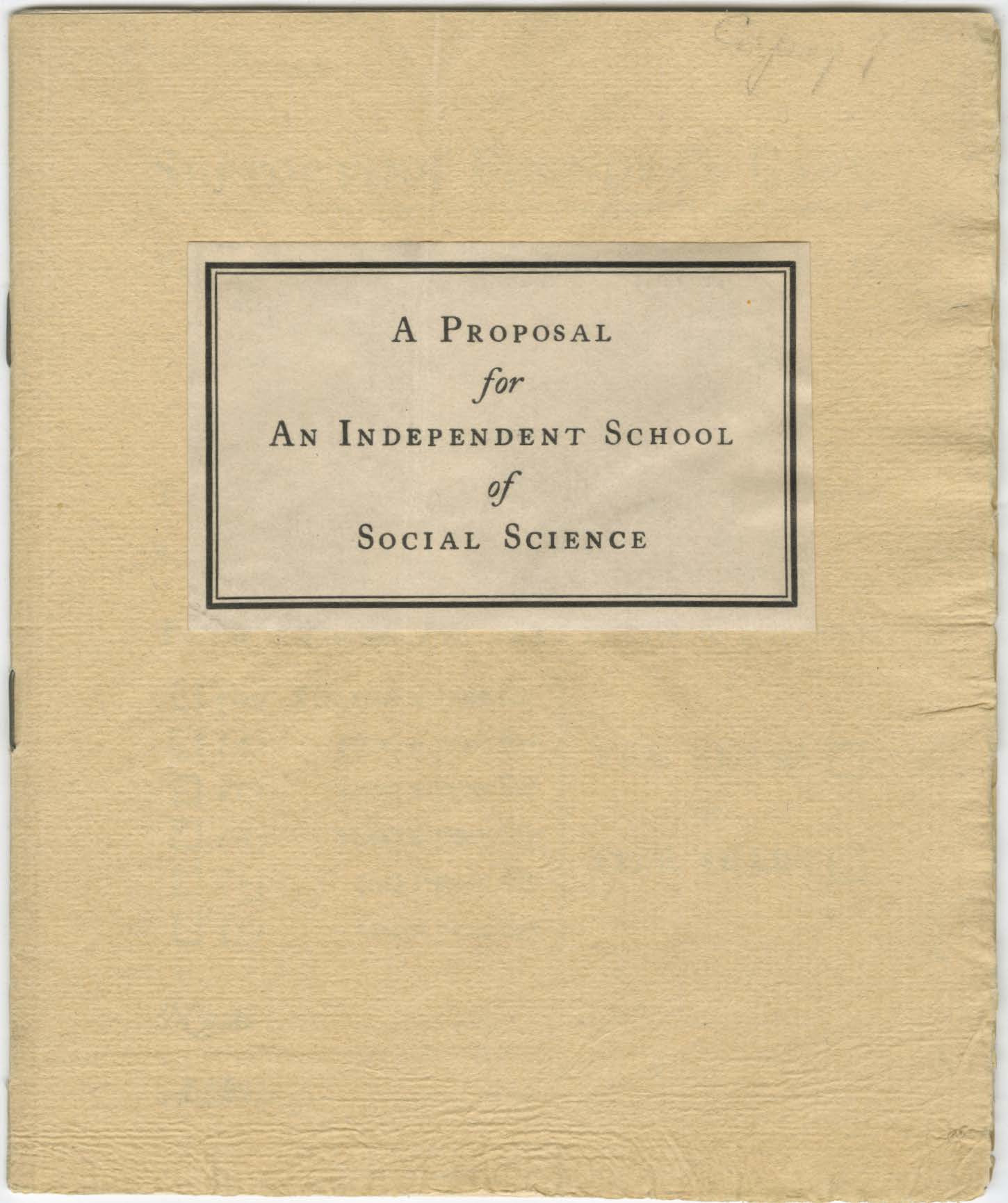
Margaret McKay Tee
Margaret McKay Tee was born in 1882 and raised in Pennsylvania until her family moved to Colorado. Following her education at Colorado College, she trained at New York’s Cooper Union and Columbia Teacher’s College, where she met Frank Alvah Parsons.
Janet Abu-Lughod
Janet L. Abu-Lughod (1928-2013), professor emerita at The New School for Social Research and of Sociology at Northwestern University, held graduate degrees from the University of Chicago and the University of Massachusetts Amherst.
John Dewey
John Dewey cofounded The New School. You can read more about him here.
If you’d like to write a more in-depth profile of John Dewey, email us at archivist@newschool.edu. We welcome contributions.
New School Bulletins
History of the Bachelors Program
On May 19, 1944, the Board of Regents granted the New School the ability to give bachelor’s degrees and the school aimed to attract adult students starting or finishing their degrees. The school was poised to take advantage of the recently passed G.I.
Agnes de Lima
Agnes de Lima was born in New Jersey to a conservative banking family that had emigrated from Curaçao. De Lima grew up in Larchmont, New York, and New York City, and graduated from Vassar College in 1908, majoring in English.
Eugene Lang
Eugene Lang made large donations to The New School’s undergraduate liberal arts college—Eugene Lang College. You can read more about him here.
The Stranger and the City
In the ultimate sense of education and of culture, there can be no conflicts.
Reflections on the New School’s Founding Moments, 1919 and 1933
From its very beginning, the New School has wrestled with the consequences of unfreedom, fear, and insecurity, working to advance John Milton’s ringing affirmation of 1643: “Give me liberty to know, to utter, and to argue freely according to conscience, above all liberties.” It has tr
Massive Subsidies and Academic Freedom
To kill through kindness is quite possible.
The Higher Learning in America
In any civilization there will be found something in the way of esoteric knowledge. This body of knowledge will vary characteristically from one culture to another, differing both in content and in respect of the canons of truth and reality relied on by its adepts.
Commencement Speech
First of all, welcome—parents, grandparents, siblings, cousins, and every member of every kind of extended family. So, here you are at last, class of 2010, about to graduate. But from what? First of all, of course, from a lifetime of being students.
The Ends of Education
There is more agreement about the ends of education in contemporaneous discussion than about the way in which they are to be derived. And there is more agreement about the phrasing of the ends of education than about their concrete meaning in any specific cultural context.
Education for an Industrial Age
The American people stand squarely and hopefully on the threshold of an era in which the average standard of living will reach a new and higher level.
Politics as Pedagogy and Pedagogy as Politics
Ironically, one of the most legendary of early film curricula was never actually put into effect.
Distinctively American: The Liberal Arts College
Patents on the traditional mission of liberal arts education have expired. Generic versions of that mission are now regularly included in even the most specialized under graduate curricula.
Millionaire Turns Mentor for Kids: Eugene Lang; “You Must Have a Dream”
Three years later, the girl’s dream has been restored: now 19 years old, she’s still in high school, about to get her diploma.
Pedagogy for the Oppressed
A careful analysis of the teacher-student relationship at any level, inside or outside the school, reveals its fundamentally narrative character. This relationship involves a narrating Subject (the teacher) and patient, listening objects (the students).
My Pedagogic Creed
I believe that all education proceeds by the participation of the individual in the social consciousness of the race.
Greenwich Village and the Soul of a Woman (On Clara Mayer)
Clara Meyer, the heart, brains and soul of the New School for Social Research from 1919 until 1960 hired me as registrar, that is, bean counter, during those early WWII years while I was attending Columbia College and awaiting my call up in the U.S. Army Reserve Corps.
“Education as Growth” and “Experience and Thinking”
The following pages embody an endeavor to detect and state the ideas implied in a democratic society and to apply these ideas to the problems of the enterprise of education.
Professionals as Professors: Fashion before 1950
The Fashion Design program at Parsons has always been known for its professors and mentors, and the professors have always been industry professionals who bring the students outside of the classroom and into the real world.
Alvin Johnson
Alvin Saunders Johnson (December 18, 1874 – June 7, 1971) was an American economist and a co-founder and first director of The New School.
Art Models in the 1960s
Art models at The New School offer an insight to the changes, discrepancies, and happenings at the New School during the 1960s. The New School Archives provides us with records of letters, receipts, and work forms pertaining to the models during the period.
Private Enterprise in Education
The private institutions of higher education in the United States and the business men who have traditionally supported them are more than a little concerned over the tendency of the State to assume progressively greater responsibilityi n the area which they have themselves until rece
Allen Austill
I never had the pleasure of knowing Allen Austill directly. I heard him spoken of by others, usually in high praise.
The Islamic City—Historic Myth, Islamic Essence, and Contemporary Relevance
At the present time of resurgence in Islamic beliefs, the question of the Islamic city has once again come to the fore.
